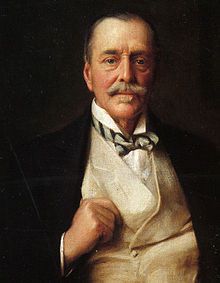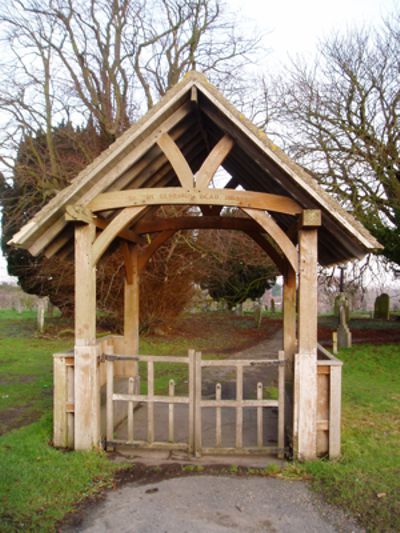First World War Memorial's Dedication
There was a special service in St. Mary’s, Teynham’s Parish Church, in May 1920 when memorials to those who died in the First World War were dedicated. Here’s an abridged version of the East Kent Gazette report of the service.
Parishioners of Teynham did honour to their gallant dead last Sunday afternoon when the memorials to Teynham men who fell in the war were dedicated by Lord Harris in the presence of a great congregation which crowded the Parish Church.
The memorials comprise a large and very handsome brass tablet within the Church and a lych gate. The latter is being built by Messrs Whiting Bros of Ospringe but it was not completed in time for last Sunday though it was sufficiently advanced to permit of its dedication.
The tablet in the church is erected at the west end where the roll of honour has hung during the war and which therefore has long since had hallowed association for those who have been bereaved.
Messrs F Osborne and Co Ltd, of London, have executed the tablet and the inscription reads: "In proud memory of the men of Teynham who laid down their lives in the great war 1914-1919.”
The service was preceded and followed by the solemn ringing of the church bells. The ringers were E Hodges, C Tumber, J Taylor, E W Tumber, E Gambell and W Nye (Conductor).
Prior to the service the organist, Mr Arthur Beach, played ‘O Rest in the Lord’. The Vicar, Rev W A Purton, conducted the service, which was a very beautiful one throughout, and one that few, if any, could have taken part in without that emotion prompted by feelings of gratitude to the men who laid down their lives and of sympathy with those whom they left behind.
The hymns ‘Ten Thousand Times Ten Thousand,’ ‘Onward Christian Soldiers’ and ‘On the Resurrection Morning’ were all sung with great feeling, led by the voices of united choirs.
 Lord Harris, speaking from the chancel step, said it was worthy of note that in the great majority of cases these memorials to the fallen were connected with the Church. He thought that was a very gratifying and reassuring sign of the influence of religion in these days where there was a great rush and perhaps in some minds a difficulty of finding time for religion. As regards the form which they had decided their memorial should take at Teynham, it embraced first something within the Church – a tablet which should for ever record the names of those who suffered for them; and, secondly, a lych gate as a sign of the welcome and shelter offered by the Church. And he thought it was well that these memorials should be of a substantial and enduring character. The rush of the time was so great, the pressure of anxiety was so great, that already the war was becoming so misty as to be almost – except within the minds and hearts of those who had lost their dear ones – an evil dream, something we had passed through, but thoughts of which we would rather obliterate. He thought we might be very thankful to all who died for our race – not only those who were living among us and went forth from our own shores, but those who, co-equal in the gigantic task, poured into our navies and our armies from overseas, our sons from all parts of the world to take their share in protecting the Old Country.
Lord Harris, speaking from the chancel step, said it was worthy of note that in the great majority of cases these memorials to the fallen were connected with the Church. He thought that was a very gratifying and reassuring sign of the influence of religion in these days where there was a great rush and perhaps in some minds a difficulty of finding time for religion. As regards the form which they had decided their memorial should take at Teynham, it embraced first something within the Church – a tablet which should for ever record the names of those who suffered for them; and, secondly, a lych gate as a sign of the welcome and shelter offered by the Church. And he thought it was well that these memorials should be of a substantial and enduring character. The rush of the time was so great, the pressure of anxiety was so great, that already the war was becoming so misty as to be almost – except within the minds and hearts of those who had lost their dear ones – an evil dream, something we had passed through, but thoughts of which we would rather obliterate. He thought we might be very thankful to all who died for our race – not only those who were living among us and went forth from our own shores, but those who, co-equal in the gigantic task, poured into our navies and our armies from overseas, our sons from all parts of the world to take their share in protecting the Old Country.
Looking down the list, he found that whilst the old county regiment, the East Kent Regiment, claimed the largest number of recruits, Teynham also provided men for all the services. One saw the names of men who suffered upon the seas and despite storms and tempests rode out their vigil. Might we not be grateful that in the time of trial our sons and the race were not wanting, but that we saw again that old and strenuous and resolute capacity which enabled our forefathers out of this little island in the North Sea to form by degrees, under great hardship, trial and difficulties, the great Empire of which we were so proud, but which was so terrible a responsibility. 
Alluding again to those whom they were commemorating that day, the Lordship said that for those who had fallen surely there was no need for grief. Our grief should rather be for those who had been left behind. The fallen were called up for the greatest sacrifice that man could render to his country and they responded. They did their duty and they fell in the service of their country, and surely there was no greater distinction that man could win than that? They laid down their lives for the sake of honour and as a great example to those who came after of what a patriot should be.
At the conclusion of the address the dedication ceremony was performed and the Last Post sounded by an ex-Naval bugler, John Robert Shufflebotham, and the service ended with the National Anthem. As the large congregation left, Chopin’s beautiful Funeral March was played by the organist.